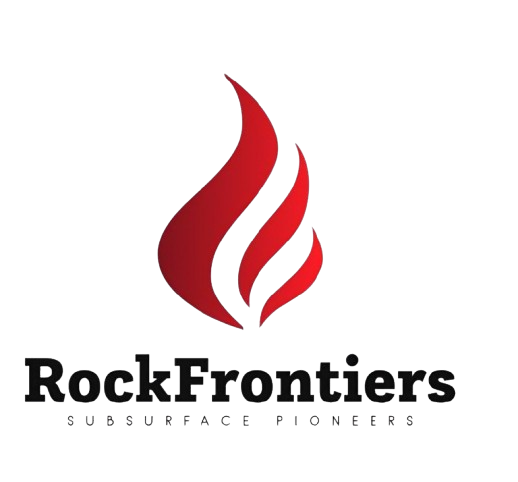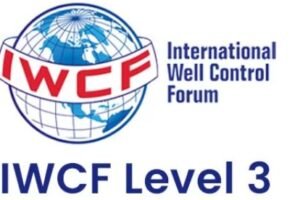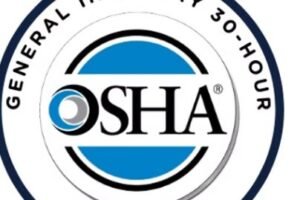📡 Revenue Assurance and Fraud Management in Telecom
📘 Course Description This course provides a comprehensive understanding of revenue assurance (RA) and fraud management (FM) in the telecommunications sector. Participants will gain hands-on knowledge of identifying and plugging revenue leakages, deploying automated RA systems, preventing fraud, and aligning …
Overview
📘 Course Description
This course provides a comprehensive understanding of revenue assurance (RA) and fraud management (FM) in the telecommunications sector. Participants will gain hands-on knowledge of identifying and plugging revenue leakages, deploying automated RA systems, preventing fraud, and aligning revenue protection strategies with operational and financial goals. The training combines technical, operational, and strategic perspectives, backed by real-world telecom case studies, data analytics, and industry frameworks (TM Forum, GSMA).
🎯 Course Objectives
By the end of this course, participants will be able to:
-
Understand the end-to-end telecom revenue chain and leakage points
-
Apply industry best practices for revenue assurance and fraud prevention
-
Design and implement RA frameworks, KPIs, and controls
-
Detect and mitigate telecom-specific fraud types (e.g., bypass, subscription, roaming)
-
Use data analytics and AI tools in RA and FM processes
-
Ensure regulatory compliance and financial integrity
👥 Who Should Attend
-
Revenue Assurance Managers
-
Fraud Management Analysts
-
Internal Auditors & Risk Officers
-
Billing & Finance Teams
-
Network Operations & IT Managers
-
Regulatory Compliance Officers
-
Telecom Consultants and Solution Vendors
🧠 Training Methodology
-
Expert-led interactive sessions
-
Real-world telecom case studies
-
Hands-on exercises using test datasets
-
Group discussions & problem-solving
-
Access to industry standards and frameworks
-
Optional software tool demonstrations
📅 Detailed 5-Day Agenda with Time Breaks
📆 Day 1: Fundamentals of Revenue Assurance in Telecom
| Time | Topic |
|---|---|
| 08:30–09:00 | Welcome & Introduction |
| 09:00–10:30 | Overview of Telecom Business Processes & Revenue Chains |
| 10:30–10:45 | ☕ Coffee Break |
| 10:45–12:15 | Introduction to Revenue Assurance: Definitions, Scope & Value |
| 12:15–13:15 | 🍽️ Lunch |
| 13:15–14:45 | Types and Sources of Revenue Leakage in Telecom |
| 14:45–15:00 | ☕ Coffee Break |
| 15:00–16:30 | RA Maturity Models and TM Forum Frameworks (GB941/GB942) |
📆 Day 2: Revenue Assurance Processes and Tools
| Time | Topic |
|---|---|
| 08:30–10:00 | Key RA Process Areas: Usage, Rating, Billing, Collections |
| 10:00–10:15 | ☕ Coffee Break |
| 10:15–12:15 | RA Controls Design and Implementation |
| 12:15–13:15 | 🍽️ Lunch |
| 13:15–14:45 | Data Reconciliation Techniques (CDRs, Mediation, IN, Billing) |
| 14:45–15:00 | ☕ Coffee Break |
| 15:00–16:30 | Using Data Analytics in Revenue Assurance |
📆 Day 3: Telecom Fraud Management Fundamentals
| Time | Topic |
|---|---|
| 08:30–10:00 | Introduction to Telecom Fraud: Classifications & Trends |
| 10:00–10:15 | ☕ Coffee Break |
| 10:15–12:15 | Common Fraud Types: Bypass, Subscription, SIM Box, Roaming Fraud |
| 12:15–13:15 | 🍽️ Lunch |
| 13:15–14:45 | Telecom Fraud Lifecycle & Detection Techniques |
| 14:45–15:00 | ☕ Coffee Break |
| 15:00–16:30 | Fraud Management Systems (FMS): Architecture and KPIs |
📆 Day 4: Advanced Techniques in RA & FM
| Time | Topic |
|---|---|
| 08:30–10:00 | AI/ML and Automation in RA and FM |
| 10:00–10:15 | ☕ Coffee Break |
| 10:15–12:15 | Proactive Fraud Prevention Strategies |
| 12:15–13:15 | 🍽️ Lunch |
| 13:15–14:45 | Internal Audit & Forensics in Revenue Protection |
| 14:45–15:00 | ☕ Coffee Break |
| 15:00–16:30 | Case Study: Multi-Operator Fraud and Revenue Leakage |
📆 Day 5: Strategy, Compliance & Wrap-Up
| Time | Topic |
|---|---|
| 08:30–10:00 | KPIs, SLAs, and Performance Metrics for RA/FM |
| 10:00–10:15 | ☕ Coffee Break |
| 10:15–12:15 | Regulatory & Financial Compliance (e.g., SOX, ITU, GSMA) |
| 12:15–13:15 | 🍽️ Lunch |
| 13:15–14:45 | Designing a Revenue Assurance & Fraud Management Roadmap |
| 14:45–15:00 | ☕ Coffee Break |
| 15:00–16:30 | Group Presentation, Wrap-Up & Certification Distribution |
📂 Course Materials Provided
-
Telecom RA & FM Toolkit (Templates, Dashboards, Controls Matrix)
-
Industry Standards (TM Forum RA/FMS Models, GSMA Fraud Reports)
-
Real-World Data Samples and Case Studies
-
Reference Handbook & Glossary
-
Certificate of Completion
Target audiences
- Reservoir Engineers, Geologists
You May Like
📘 Underbalanced Drilling (UBD) Techniques and Safety
🎯 Course Description: This intensive 5-day program focuses on Underbalanced Drilling (UBD) – an advanced technique used to drill wells where the hydrostatic pressure of the fluid is intentionally kept below formation pressure. Participants will learn how to implement UBD …
📘 IOSH Managing Safely
🎯 Course Description: A practical, 5-day program designed to help managers and supervisors learn how to manage safety and environmental responsibilities in their teams. Emphasis is placed on identifying risks, measuring performance, and leading safely using internationally recognized good practices. …
📘 IWCF Level 3 Well Control (Surface BOP)
🎯 Course Description: This is an intensive course aimed at drilling / well service personnel needing to gain supervisory competence in well control using surface blow‑out preventers (BOP) under the IWCF standard. It covers theory, hands‑on practice, and assessments for …
Advanced Specialist Petroleum GeoMechanics
📘 Course Description: This elite-level course is tailored for petroleum geomechanics specialists and senior subsurface professionals engaged in complex field development projects. It provides a deep technical dive into stress modeling, anisotropic rock behavior, coupled geomechanical-reservoir simulation, fault/fracture mechanics, and …
📘 OSHA 30‑Hour General Industry Safety and Health
🎯 Course Description: This 5‑day course provides in‐depth knowledge of workplace safety and health in general industry sectors. It covers OSHA regulations, hazard recognition, safety programs, and industry best practices. Participants will gain the expertise needed to maintain a safe …






